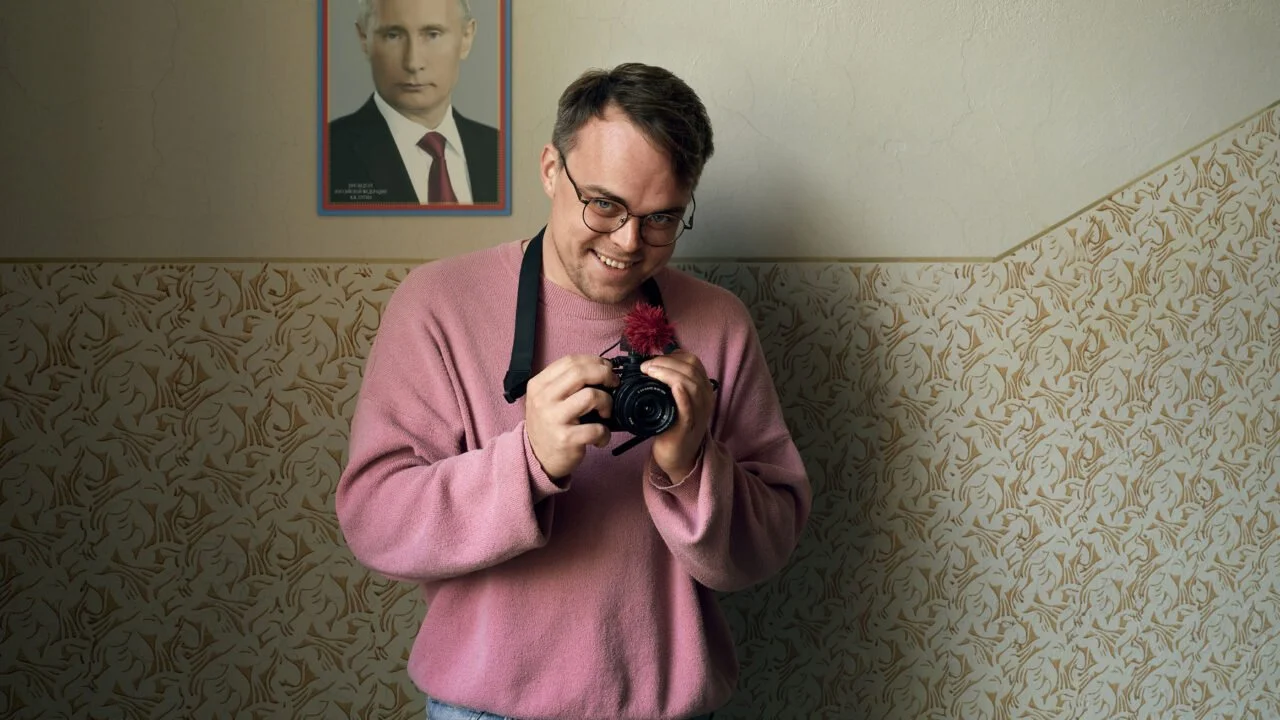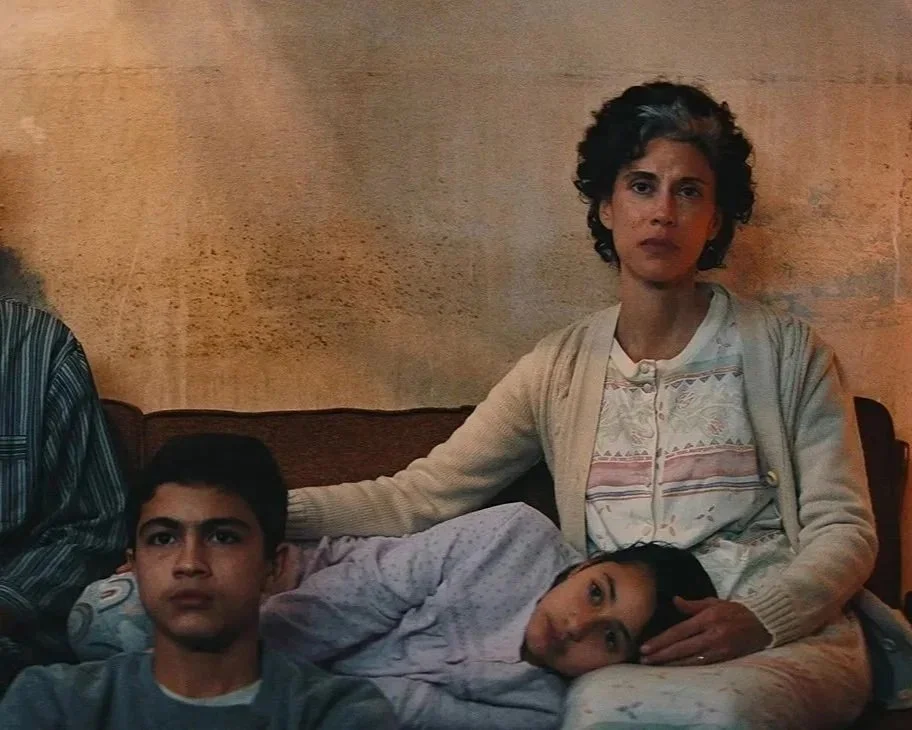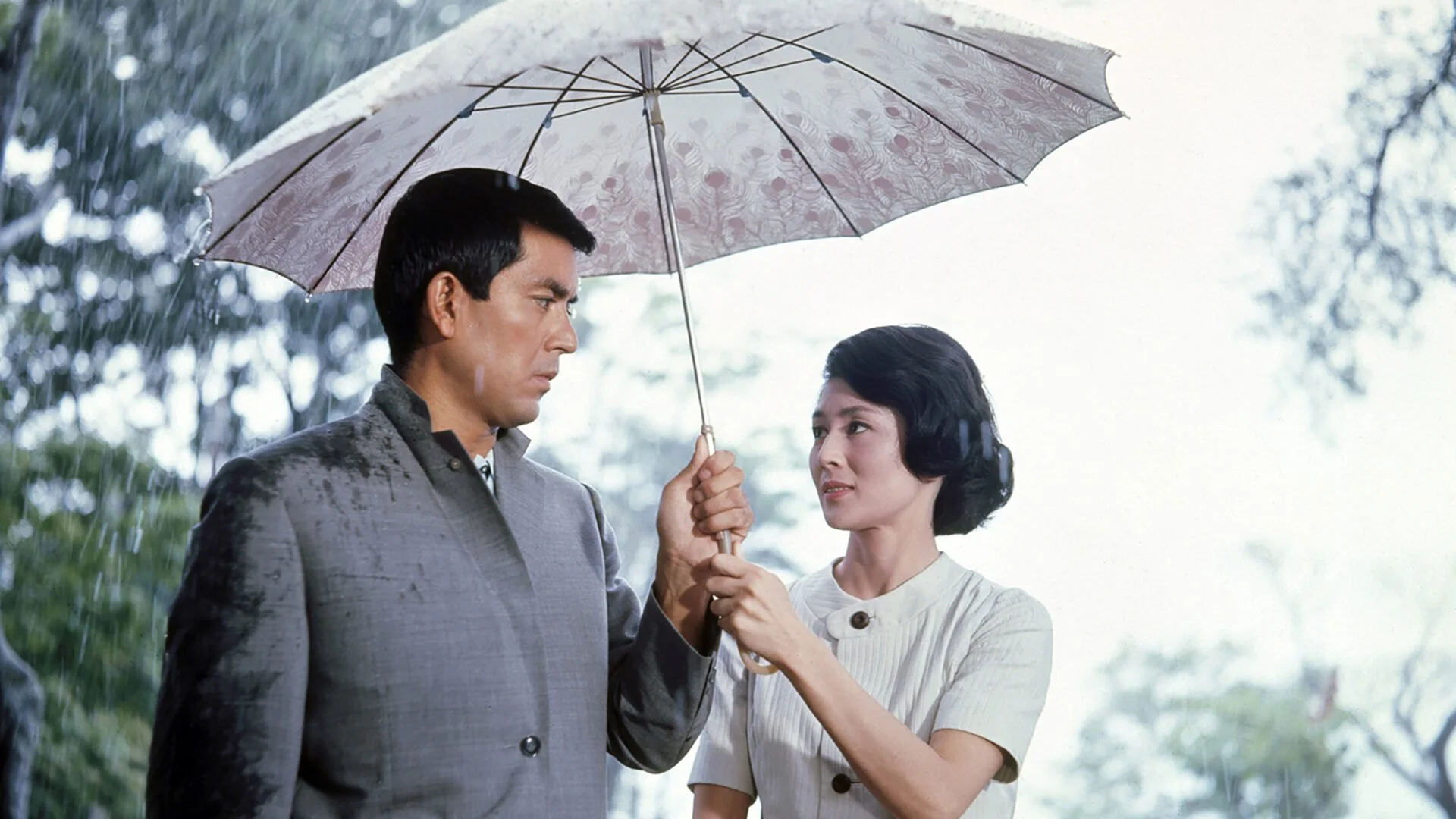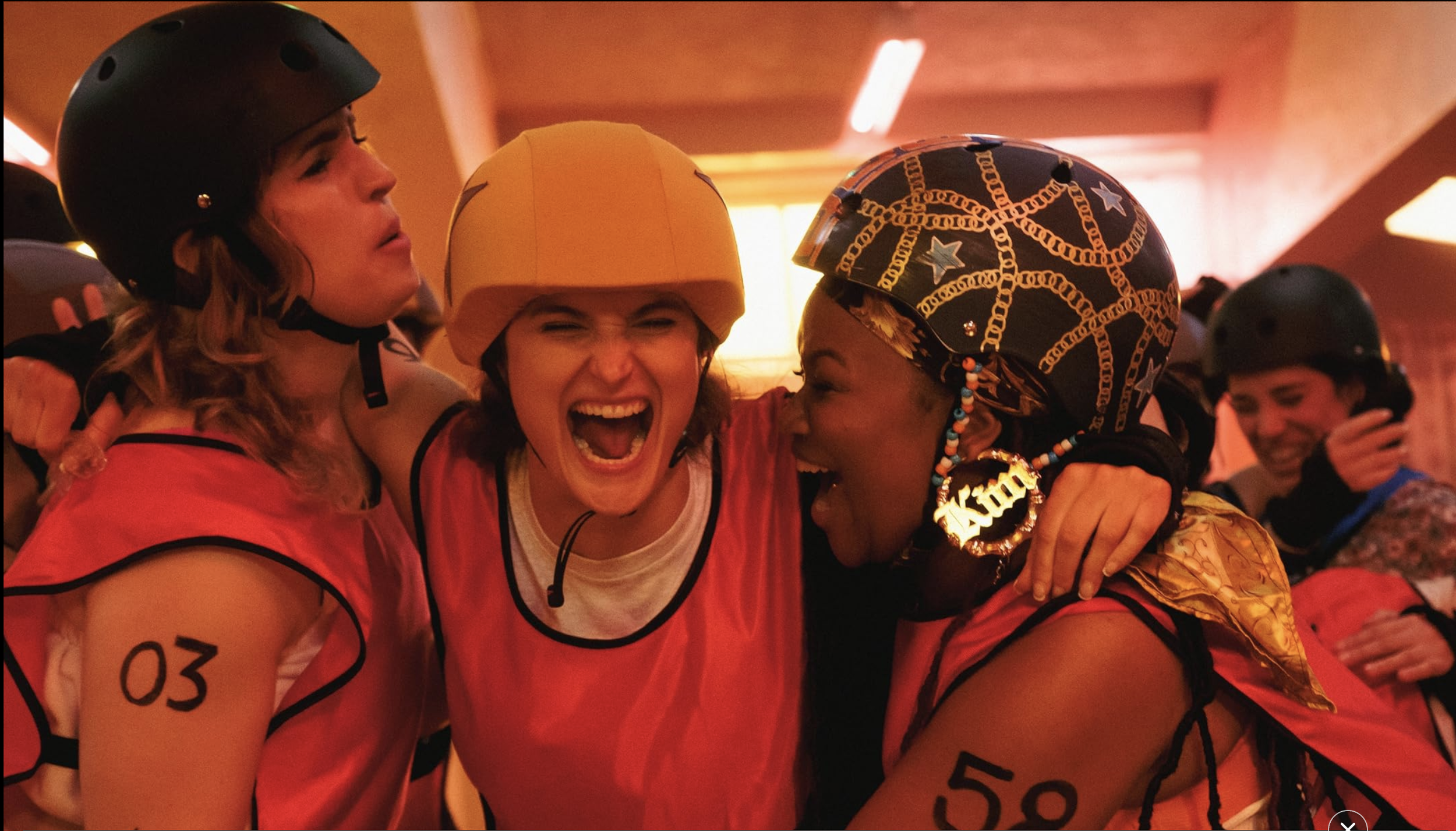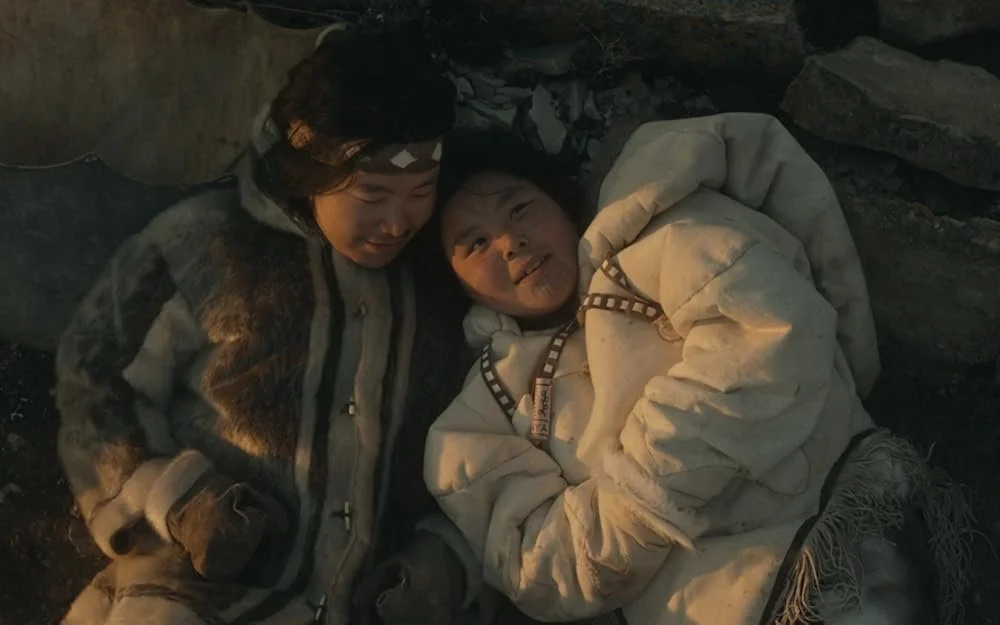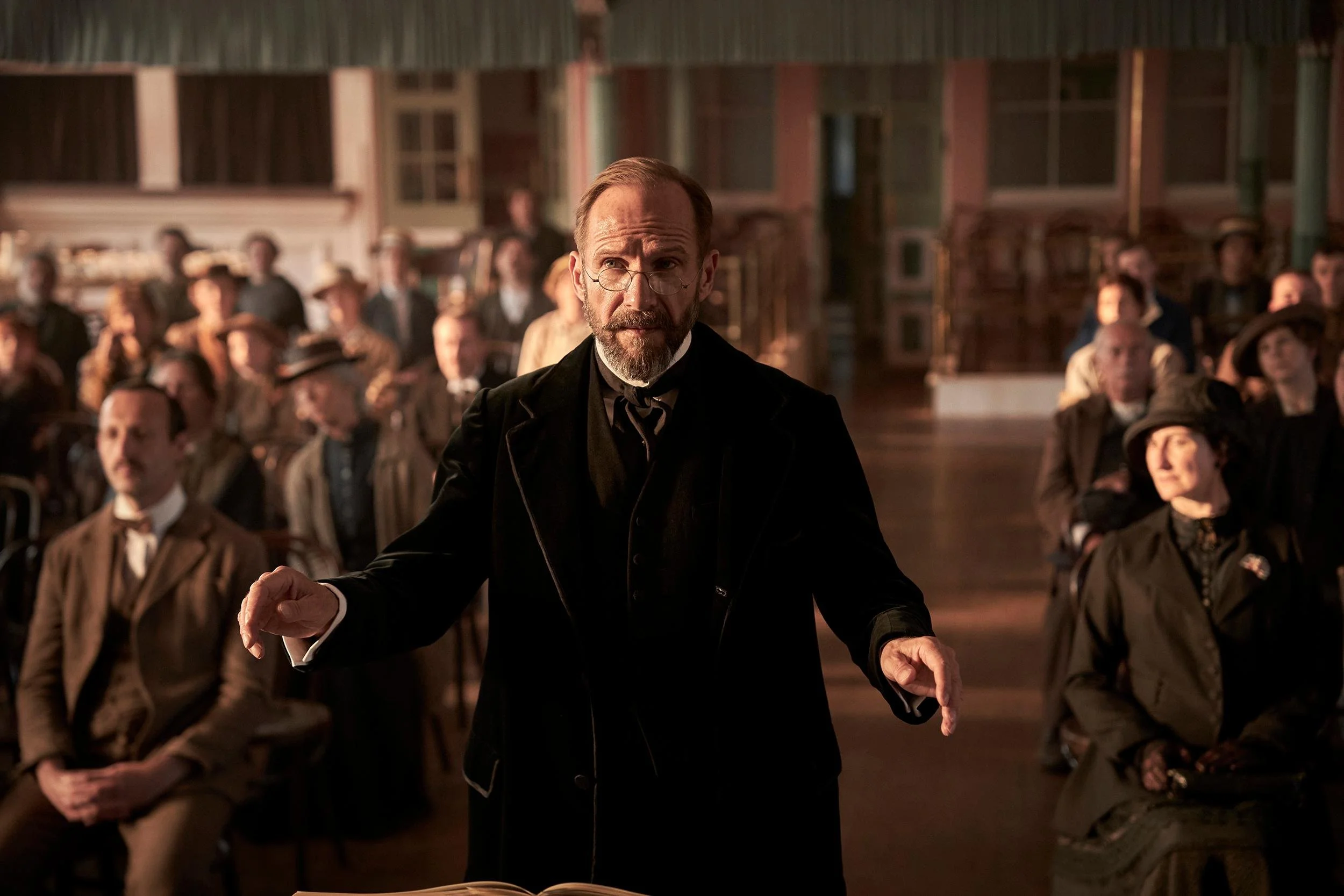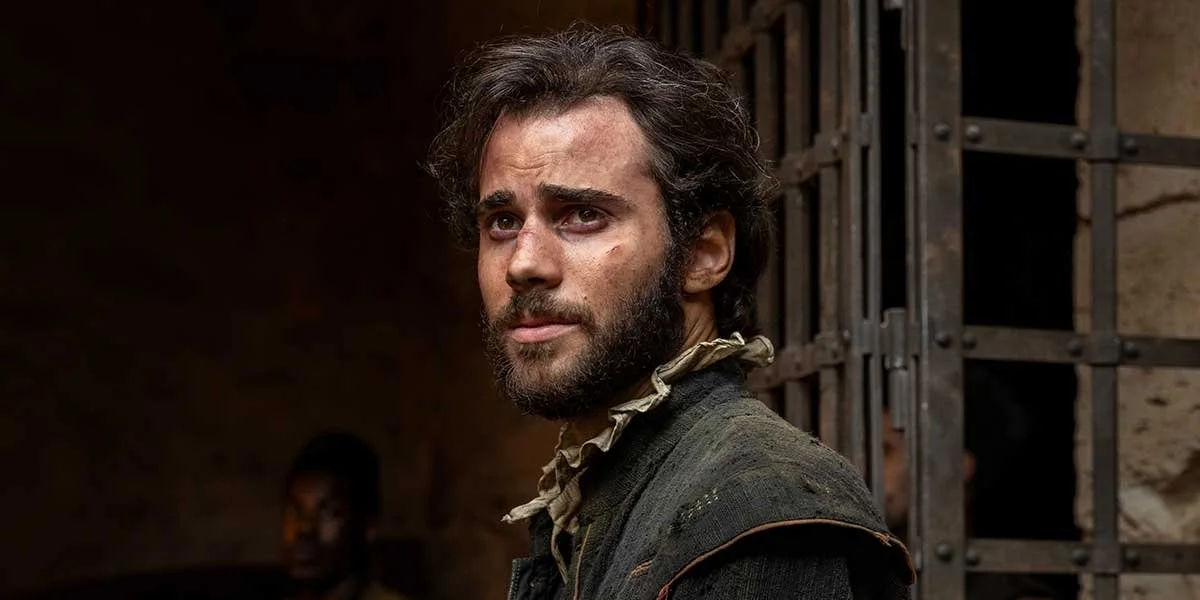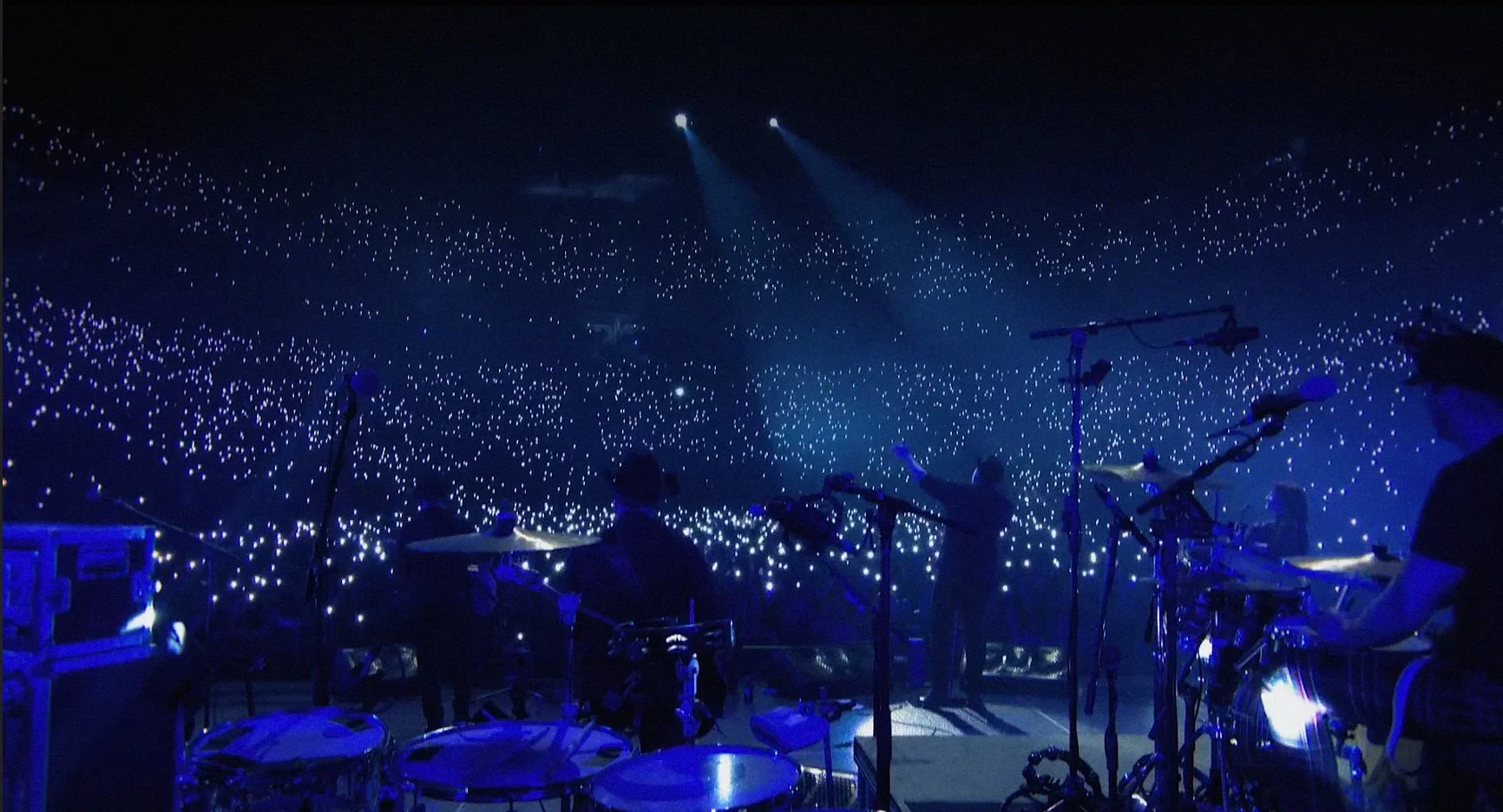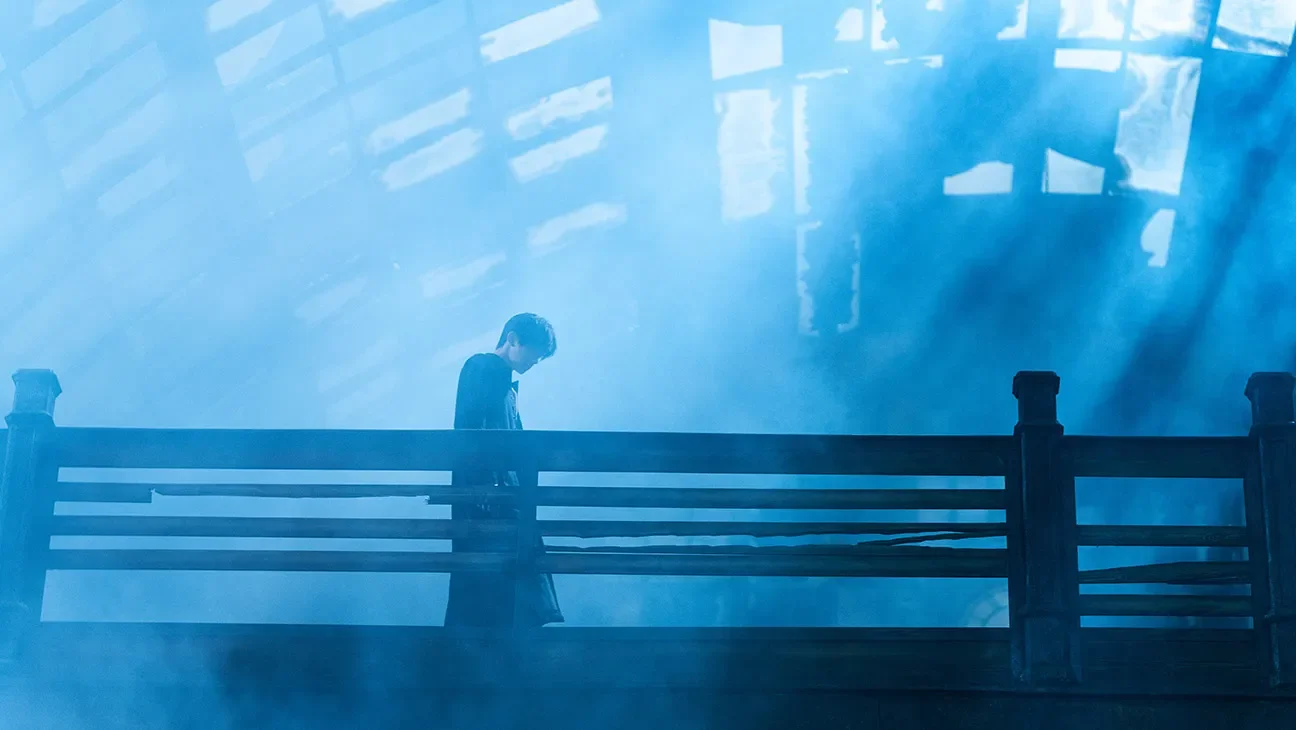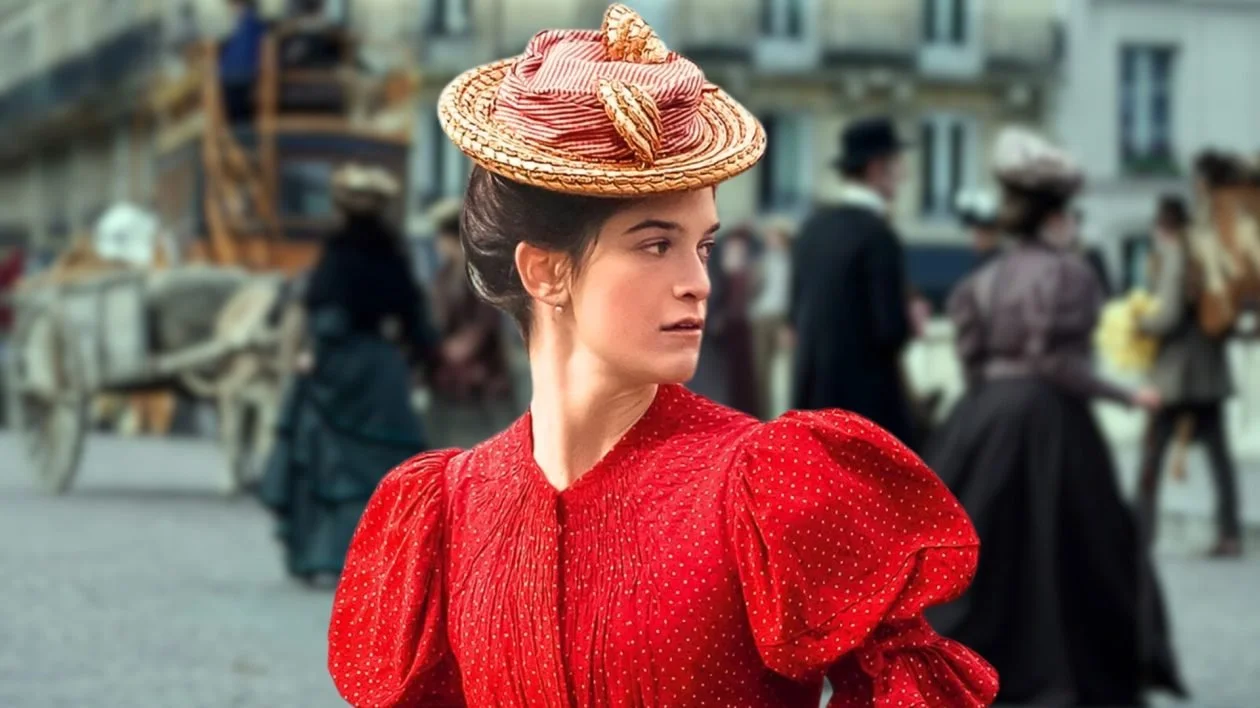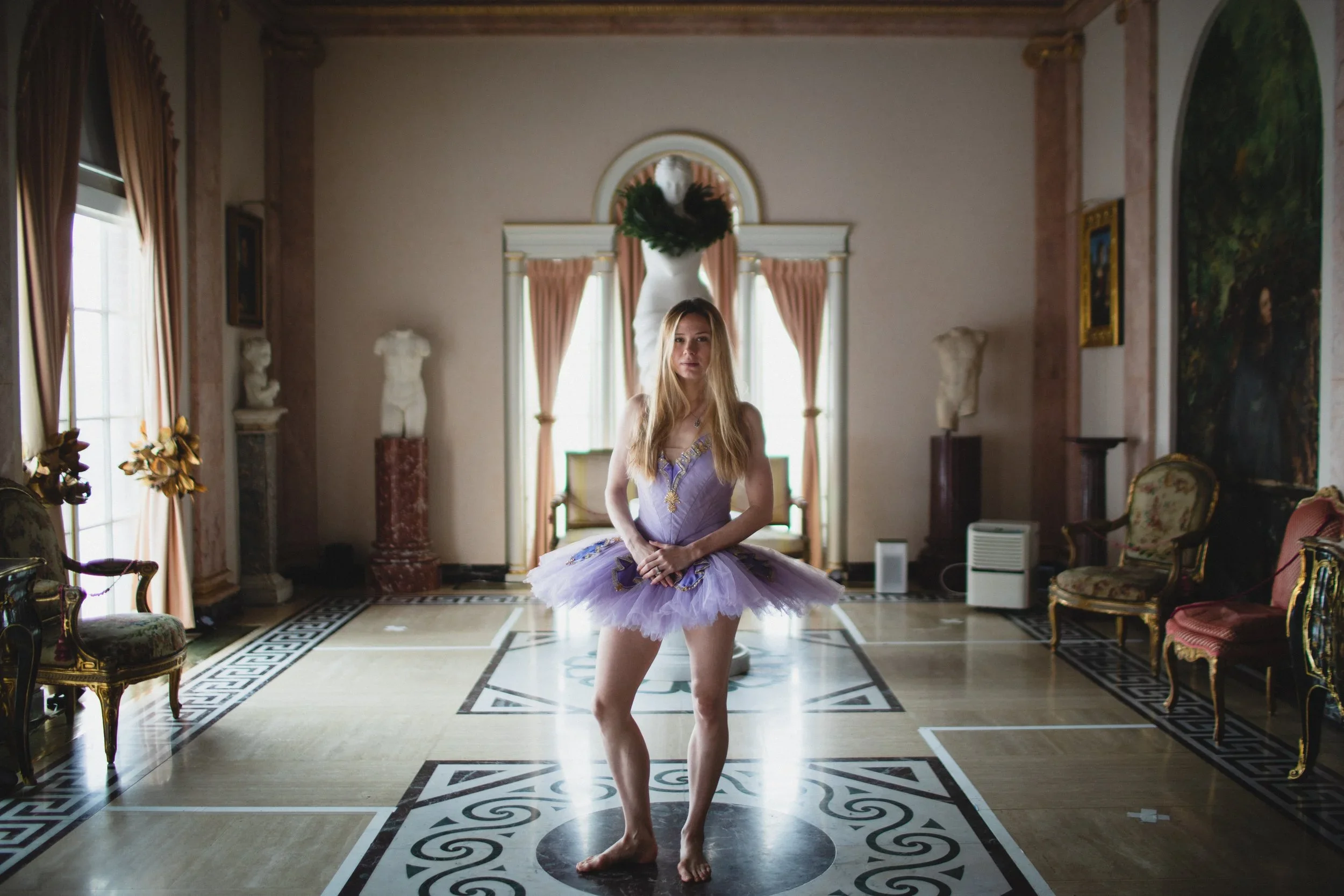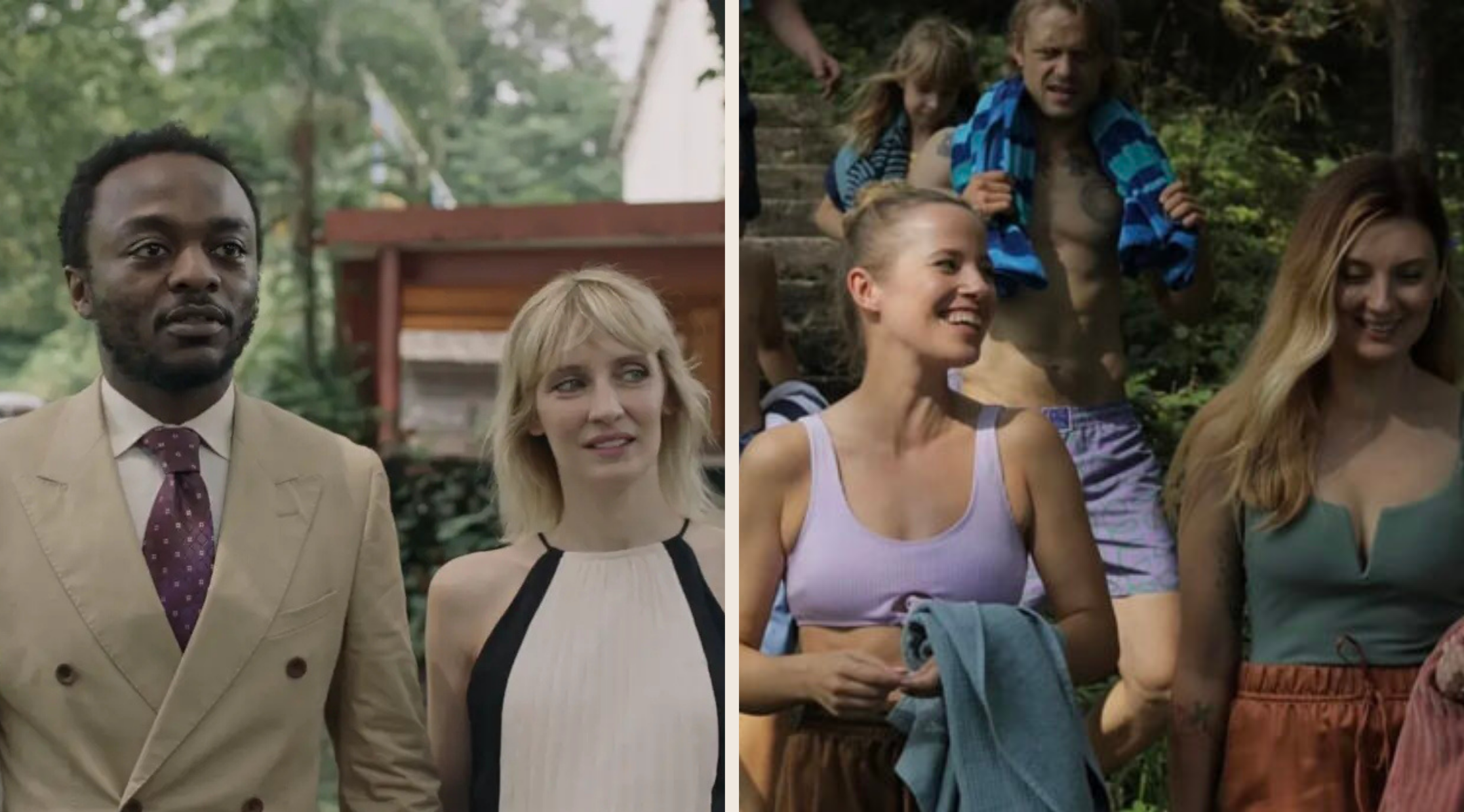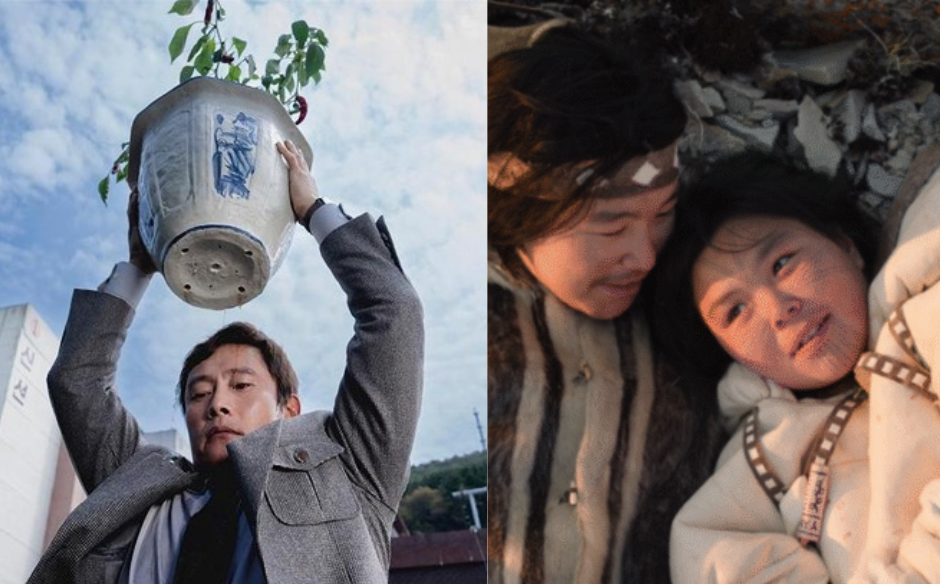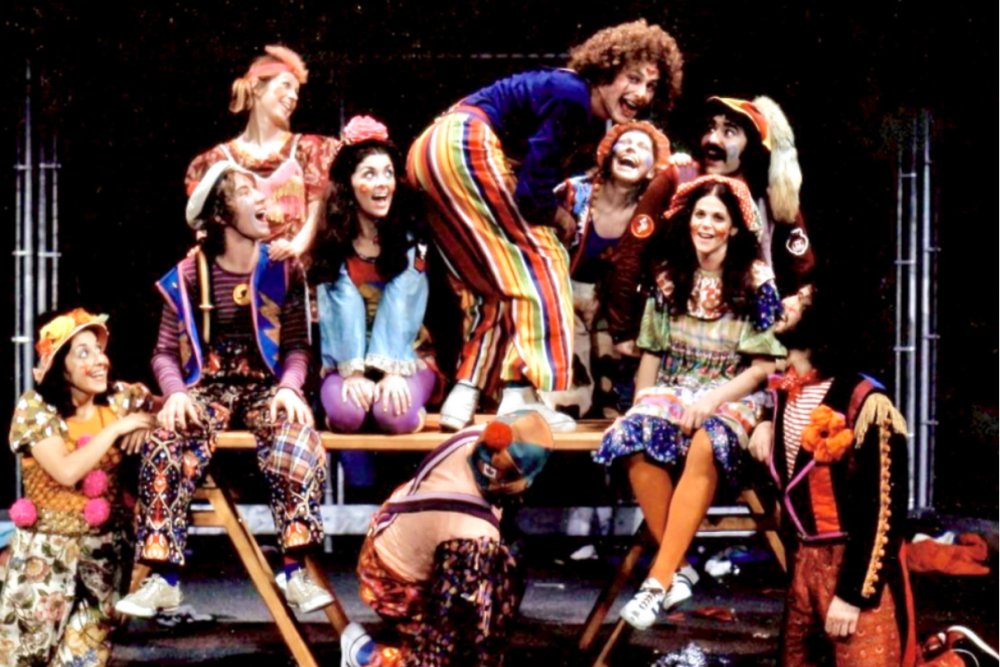Film reviews: At DOXA, haunting exposés, off-grid hermits, and meaningful cooking
Mr. Nobody Against Putin takes an urgent look at Russian indoctrination; Spare My Bones, Coyote! finds horrors at the U.S. border; Eight Postcards From Utopia runs weird commercials from free-market Romania; and more
Spare My Bones, Coyote!
Mr. Nobody Against Putin.
DOXA Documentary Film Festival runs at various venues to May 11
FROM AN URGENT inside perspective on Russia’s propaganda machine to a heartbreaking exposé about migrant deaths on the U.S. border, here are a few quick looks at some of the most compelling fare at this year’s DOXA Documentary Film Festival.
Mr. Nobody Against Putin
May 7, 8 pm, SFU Woodward’s Djavad Mowafaghian Cinema
Schoolteacher Pasha Talankin loves his students. He loves the bite of the bitter cold in his Ural Mountains hometown of Karabash. He even loves the Soviet Bloc apartments and the “maze of pipes coming from the copper plant” in Russia’s industrial heartland. Which makes it even more heartbreaking when the heroic risks he takes in making this urgent documentary—one of DOXA’s very best this year—finally force him to flee. As Russia invades Ukraine, Vladimir Putin launches an ever-more invasive propaganda campaign to brainwash students, and freethinking Pasha, the school’s official videographer, decides to document it for Western eyes. At first, the indoctrination begins with patriotic flag-waving ceremonies; soon it descends into fake history lessons about Ukraine’s ties to Mother Russia and traitors lurking everywhere (“The enemy is trying to recruit people from local communities”). At one blackly absurd point, even Wagner soldiers come in to educate kids about grenades and guns. The funny, empathetic, and slightly rumpled Talankin is there to witness it all, adding first-person reflections, clandestinely recording funerals for teen soldiers killed on the frontline, and slowly finding himself isolated at school for being too outspoken. Copenhagen-based director David Borenstein pulls Talankin’s footage together in a hauntingly poetic way, underscored by a soundtrack that heightens the sinister acts that are unfolding. To the film’s credit, all that darkness is frequently lightened by the protagonist’s rambunctious sense of humour—say, a hilarious guerrilla takeover of the national anthem on the school’s PA system. But overall, this is a terrifying, essential look at Putin’s efforts to mould the next generation for war and empire, and the courage of the “nobodies” who are putting their lives in danger—and fleeing the hometowns they love—to fight it. •JS
Spare My Bones, Coyote!
May 3, 9 pm, The Cinematheque
In its opening scenes and elsewhere, thanks to an artful confluence of bleached, sometimes glitchy visuals and sound design, this impressive doc could be mistaken for a bummer horror flick. Its real-life horrors are already unthinkable. When migrants from Mexico and elsewhere disappear along the U.S. border, Marisela and Ely Ortíz are the people who go looking for the body, usually after receiving a call from a distraught relative. They don’t get paid and they waste no time. Ely has experience: he lost family members of his own. Directed by Jonah Malak (who edited the gripping Québécois horror film Red Rooms), Spare My Bones, Coyote! would be an ordeal without its attention to this humble, God-fearing family. Elsewhere, the plight of the migrant is detailed in haunting images of abandoned shoes amid the cacti, heartbreaking last calls saved by relatives back home, or the sequence in which a forensics expert talks about her “demoralization” as she drills into yet another blanched skull that will probably never be identified. On a road trip to Guatemala and Honduras, Marisela and Ely are met with anger and frustration when they try to educate about the dangers of migrating on foot, whereupon the whole insurmountable charnel-house trap of 21st-century neoliberalism hits the viewer like an overweight truck stuffed with broiled humans. In its final moments, synchronicity steps in to lend a bitterly ironic note when Malak’s camera happens to capture an arrest in the San Diego–Tijuana border region known as Friendship Park. It’s comically listless. No running, no chasing, just two men acting out their parts in a routine of soul-crushing indifference. •AM
Eight Postcards From Utopia
May 8, 9:30 pm, VIFF Centre
The ’90s began with the fall of Communism in the East and concluded with American radicals rioting against the World Trade Organization in Seattle. Somewhere in between we were informed by Francis Fukuyama that the “End of History” was upon us. This doc from Radu Jude and Christian Ferencz-Flatz captures the flavour of that time with its schizo-clipping of Romanian TV commercials produced in the 25 years or so years after the arrival of the “free market”, which is a bit like watching the entire lifespan of capitalism if its growth was massively accelerated in a lab experiment. Interestingly enough, Romania was quick to adopt the lowbrow standards and grammar of western advertising—lots of actors debasing themselves in infantile skits, but also lots of nifty visual invention—and it only takes a minute for Pepsi to appear on the scene. Much weirder are the exhortations to invest in newly privatized businesses or the pitch for a theme park based on Dracula. The tastiest ads are the super low-budget numbers shot on video, with a special award going to the fuzzy 10-second spot that asks, inexplicably, “Are you a tits expert?” By the end of this 80-minute bonanza, which is separated into eight chapters, we’re pleased to see that Romanian capitalism has reached familiar end-stage conditions dominated by porn, pharmaceuticals, and Tide detergent. •AM
Bogancloch
May 9, 8:10 pm, The Cinematheque
Filmmaker Ben Rivers returns after more than 10 years to the Highland forests of Scotland to revisit the off-grid hermit Jake Williams, who we first met in 2011’s Two Years at Sea. Like that earlier work, Rivers’s black-and-white 16mm photography takes on the evocative quality of degraded silent film, and Bogancloch persistently calls attention to its own artifice, as when Williams skis across a precisely composed frame inside a snowy forest of such striking otherworldliness that it might as well have been built inside a studio. When Williams fires up an ancient generator in a space filled with industrial bric-a-brac, located on his remarkably sprawling compound, it’s like we’ve stumbled into an outtake from Eraserhead. And it’s slow. A one point, we watch in real time as Williams nods off in a mossy dell after idly singing Irving Berlin’s “Blue Skies”. A campfire singalong with wandering hikers is captured without interruption, ditto a visit to an elementary school where Williams delivers one of the more eccentric lectures these kids will ever encounter. And the film ends with a 12-minute sequence in which Williams prepares and climbs into a bath heated by open flame, before concluding with a cosmic directorial flourish that would do Lars von Trier proud, doled out at a somnolent pace that is never less than completely absorbing. •AM
Aisha’s Story
May 1, 7 pm, Vancouver Playhouse; May 7, 4 pm, SFU Woodward’s Djavad Mowafaghian Cinema
In Elizabeth Vibert and Chen Wang’s meditative documentary, the camera zooms in on fingers stuffing grape leaves with rice, on hands pressing and slapping dough for flatbreads, and on stone grinders turning wheat into powdery flour. This is what the film’s central figure, the old woman Aisha Azzam, calls “Palestine’s most precious heritage”: its food, developed over millennia from the fertile fields of their ancestors—land they have long since fled because of conflict. In fact, the food we watch being lovingly made here is in the Baqa’a refugee camp in Jordan, where Aisha runs the only grain mill. The filmmakers spend long, quiet stretches of time with Aisha and her relatives as they prepare food, interweaving the history of the the Palestinian-Israeli conflict with that of the family itself. Married at 18, Aisha had eight girls and two boys, with 22 grandchildren, and has lived here in exile for 35 years. Only in passing do we sense the hardship and pain: at one moment, a friend brings Aisha zaatar thyme from the West Bank that makes her grieve the loss of her homeland; at another, Aisha tells a grandson that she can’t include chicken in the stew she’s making because it’s too expensive. But mostly, this is an intimate film about love—about love of family, traditions, and shared meals. There always seems to be a grandchild by Aisha’s side, watching intently as her weathered hands cut tomatoes or separate wheat, or tasting a spoonful of what she’s making. It’s a world away from the brutality of war, but this slow, quiet film has a lot to say. •JS ![]()



